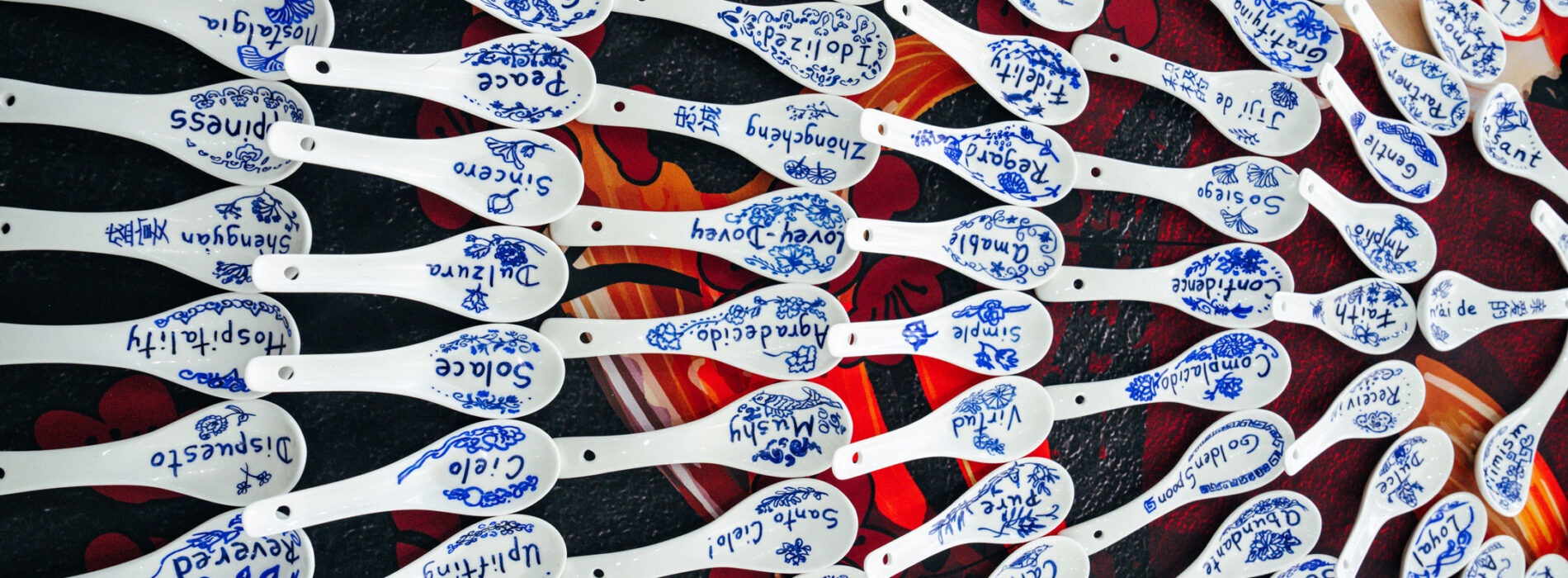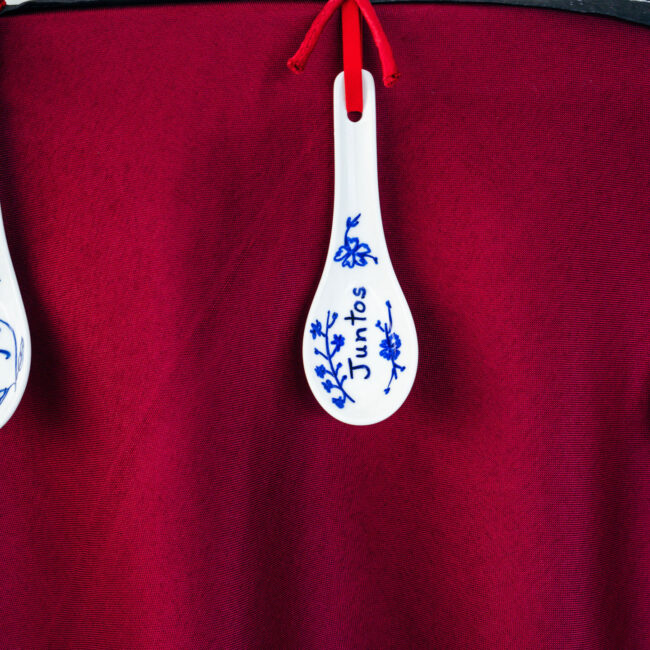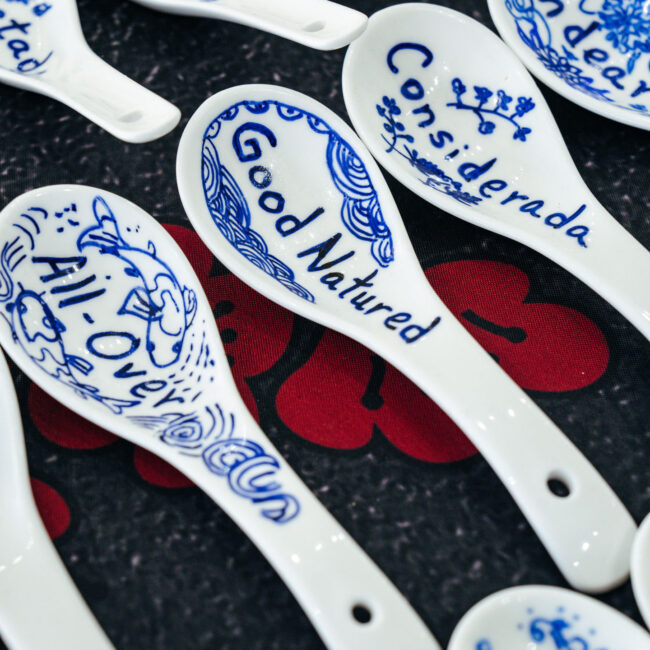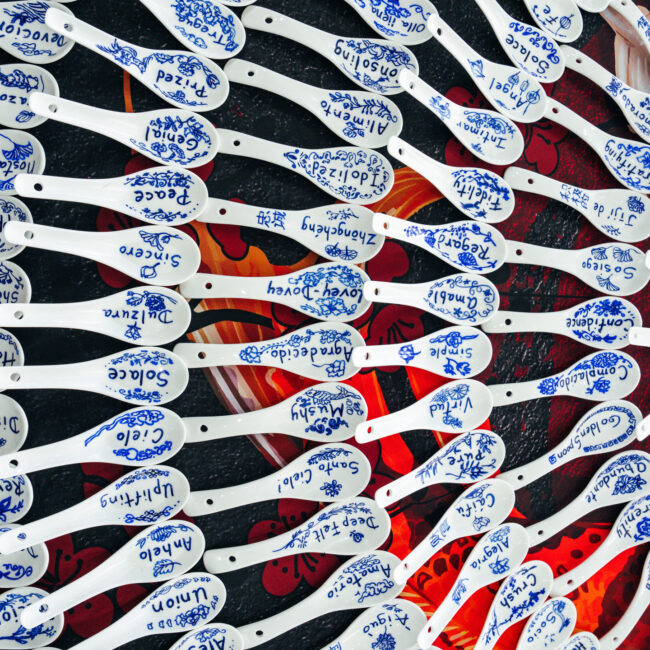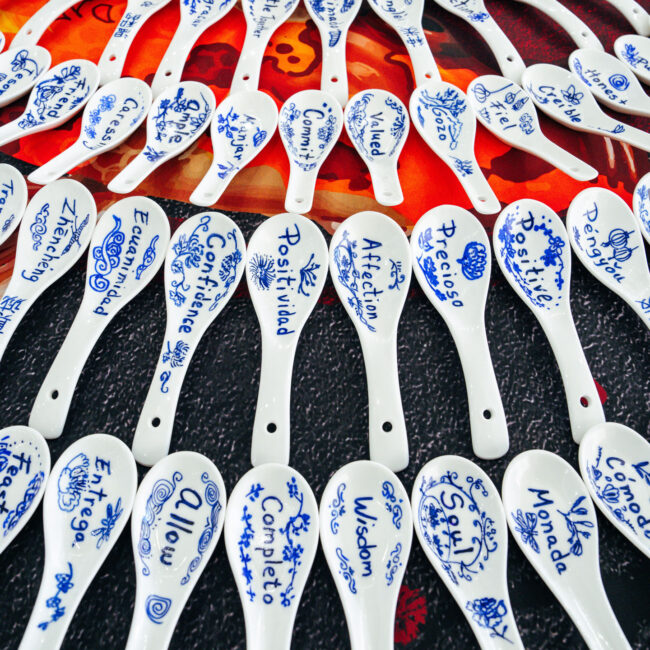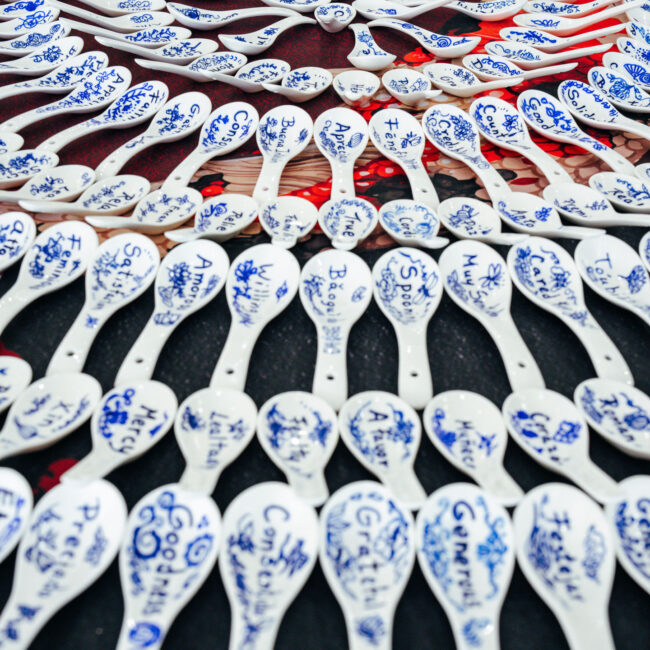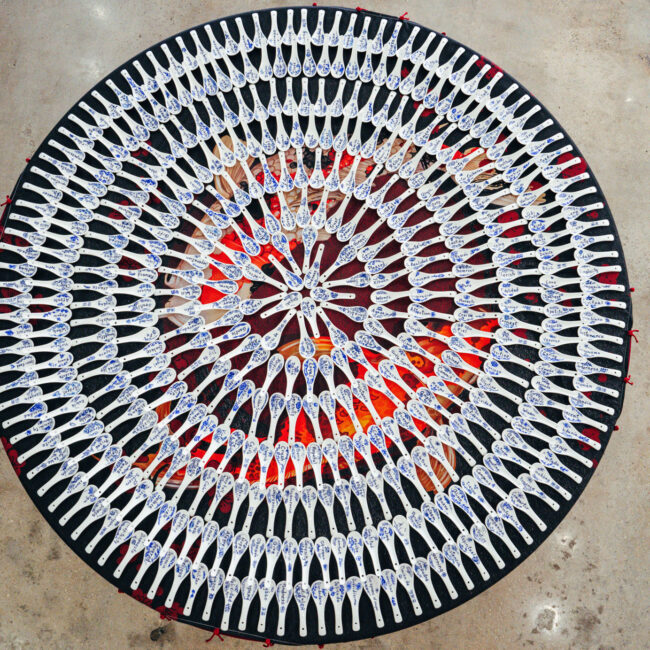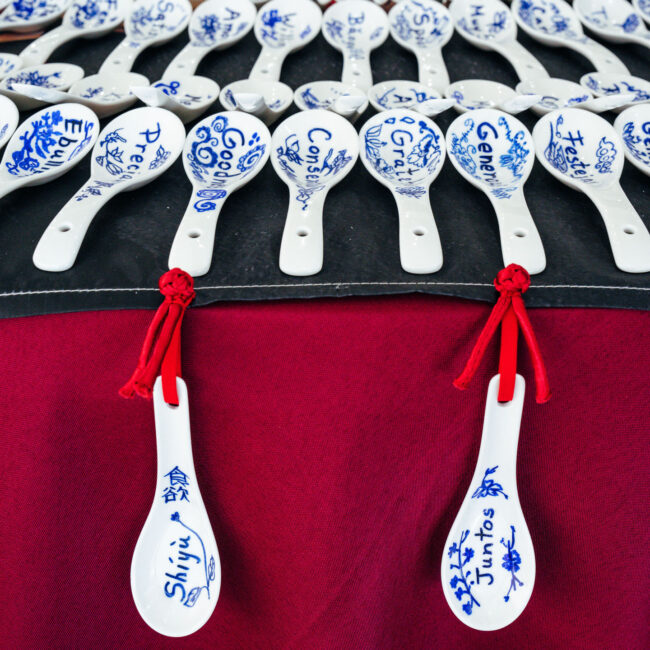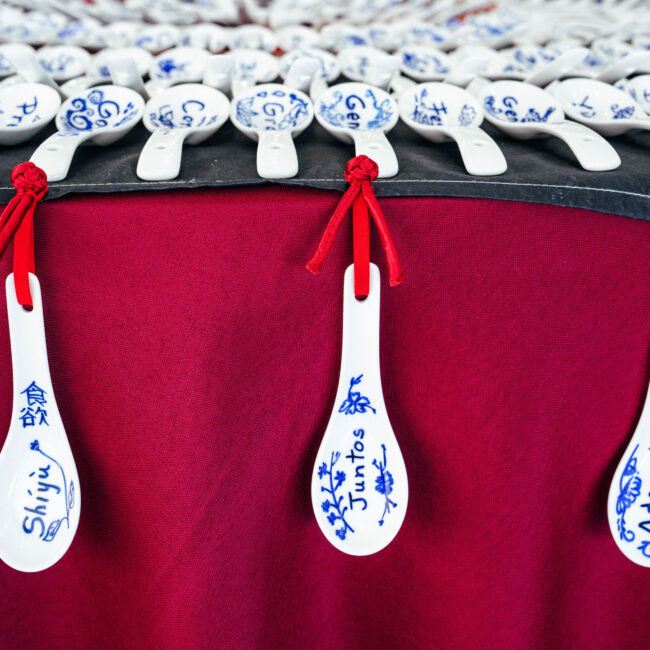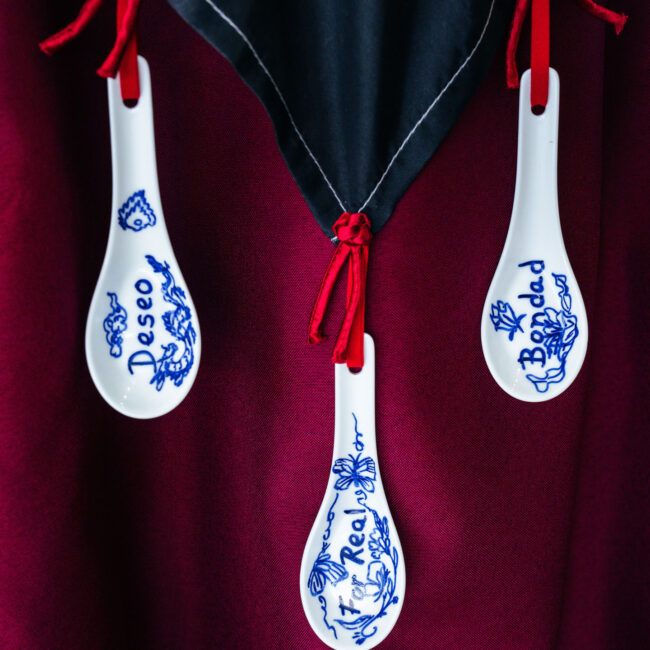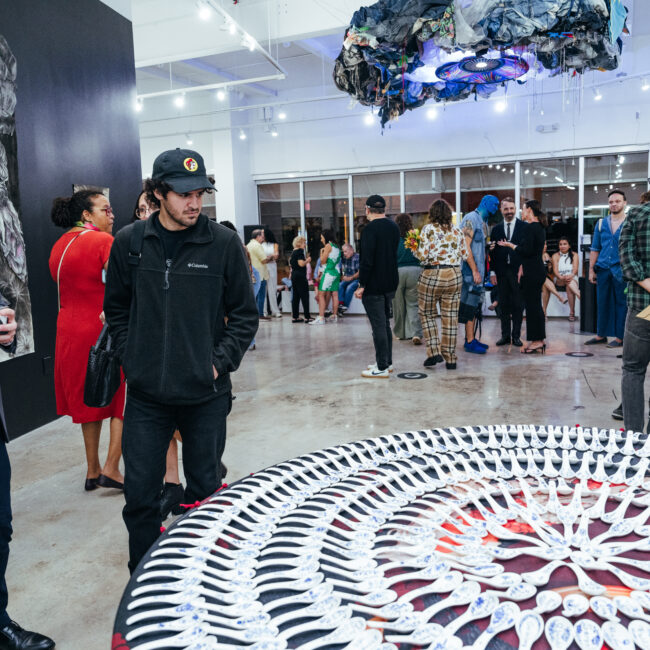MaiYap is a multidisciplinary Panamanian-born artist of Chinese descent. In 1992, after Hurricane Andrew and the birth of her child, she taught herself to paint as a means to navigate change and has since used art to explore her evolving experiences. Her work delves into themes of transformation and memory through innovative techniques. MaiYap exclusively employs palette knives and integrates everyday objects from her multicultural background, emphasizing family connections, discrimination against Asian Americans, and reproductive justice. Her artistic vision is deeply rooted in her early life in Panama, where her rich Chinese heritage merges with the vibrant tropical landscape, imbuing her work with both serenity and energy.
Her perspective evolved significantly following the 2021 hate crime against Asian Americans, particularly the Atlanta spa shooting, which prompted her to reevaluate her experience as an Asian woman in the U.S. This event significantly shifted her artistic approach, leading her to create large-scale paintings, paper collages, and installations made from repurposed items like ceramic spoons, cups, incense sticks, and more recently sanitary napkins.
Selected Solo projects include: “Sustrato”, Museo Municipal de Cartago in Costa Rica, 2024, “Eco-Aesthetics in Motion”, Museum of Contemporary Art of the Americas in Miami, Florida, 2024 and “Progenie”, GAC Motor Gallery in Panamá,2022. The artist resides and works in Miami, Florida, and earned a bachelor’s degree in advertising and graphic design from the University of Georgia. She taught art at Fairchild Tropical gardens for 14 years and is the founder and director of Palette Knife Artists of Miami.vate.
THE GATHERING
520 hand-painted porcelain spoons adorned with words related to cooking, sharing, and enjoying food. 72″ round banquet table and 2 tablecloths
Deeply affected by the surge in hate crimes targeting Asian-Americans during the pandemic, I found myself reassessing my identity, my roots, and what it meant to be an Asian-Panamanian woman in the United
States. I began to ponder what constituted my Chinese heritage. Was it my physical appearance, the values instilled in me, or the timeless traditions handed down through generations?
To navigate these reflections, l asked myself a fundamental question:
What made my household different from yours? What I miss most is the deep sense of belonging and unity that filled our family dinners. Those shared meals were a tapestry of flavors and aromas, blending the rich traditions of both Chinese and Panamanian cuisines. I can still picture the unique “tong gang im Be soup spoon” in my hand and how each bite connected me to my heritage and my family.
Shared meals have always held a special power for me, fostering connections and nurturing relationships. Cooking, sharing, and receiving food taps into a deep-seated instinct that connects me with our ancestral roots, where communal meals were essential for survival and togetherness. In today’s fast-paced world, where we often eat alone, sharing a meal becomes a cherished moment to pause, engage in heartfelt conversation, and connect genuinely. It goes beyond mere sustenance; it nourishes both body and soul, enriching our relationships and deepening our sense of belonging.
This installation is dedicated with heartfelt gratitude to my mother, whose cooking was a true expression of love.

